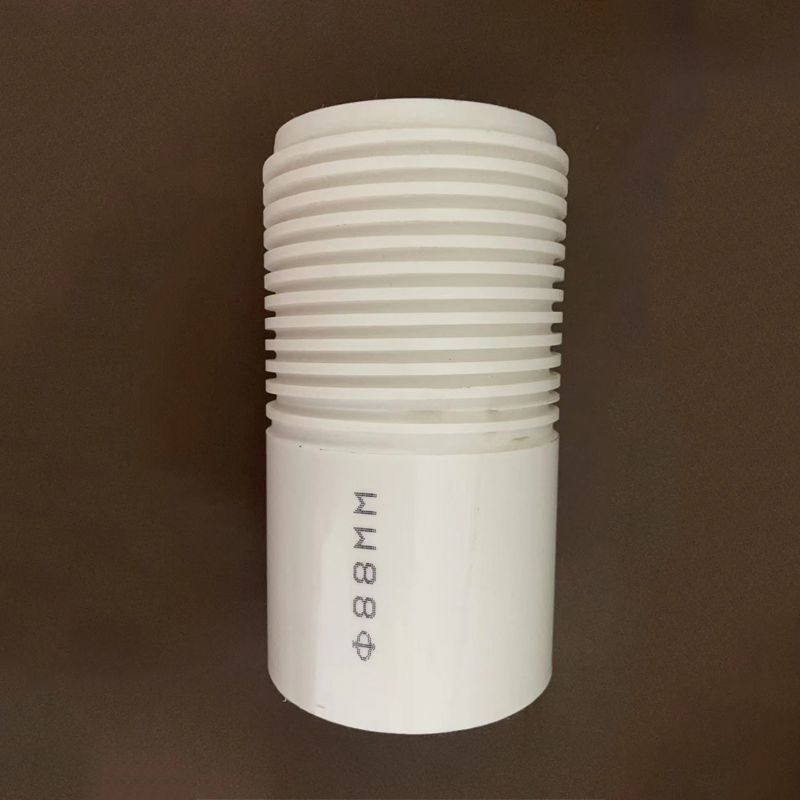Dec . 28, 2024 20:54 Back to list
pvc pipe vs ppr pipe products
PVC Pipe vs PPR Pipe A Comprehensive Comparison
When it comes to plumbing and construction projects, choosing the right type of piping is crucial. Two of the most common materials used for pipes are PVC (Polyvinyl Chloride) and PPR (Polypropylene Random Copolymer). Each of these materials has its own unique properties, advantages, and disadvantages, making them suitable for different applications. This article will compare PVC and PPR pipes to help you make an informed decision for your next project.
What is PVC Pipe?
PVC pipes are made from a synthetic plastic polymer known as polyvinyl chloride. They are widely used in various applications, including water supply, drainage systems, and electrical conduits. PVC pipes are known for their durability, resistance to corrosion, and low cost, making them a popular choice for both residential and commercial applications.
Advantages of PVC Pipes
1. Cost-Effective One of the most significant advantages of PVC pipes is their affordability. They are typically cheaper than many other types of piping materials, making them an attractive option for budget-conscious projects.
2. Lightweight and Easy to Install PVC pipes are lightweight, which makes them easy to transport and handle. Their ease of installation often results in reduced labor costs, as they require less effort to fit and connect compared to heavier materials.
3. Corrosion Resistance PVC pipes do not rust or corrode like metal pipes, which means they can last longer and maintain a high level of performance in various environments.
4. Low Maintenance Due to their resistance to corrosion and scaling, PVC pipes typically require less maintenance over time.
Disadvantages of PVC Pipes
1. Temperature Sensitivity PVC pipes can become brittle in cold weather and may warp or deform when exposed to high temperatures. This limits their use in hot water applications.
2. UV Sensitivity PVC can degrade when exposed to ultraviolet (UV) light for extended periods. Therefore, when used outdoors, PVC pipes may require protective measures.
What is PPR Pipe?
pvc pipe vs ppr pipe products

PPR pipes, or polypropylene random copolymer pipes, are a newer type of piping material that is gaining popularity in both residential and industrial plumbing. They are known for their high resistance to chemicals, temperature variations, and pressure.
Advantages of PPR Pipes
1. High Temperature Resistance PPR pipes can withstand high temperatures, making them suitable for hot water systems. They can typically handle temperatures up to 95°C (203°F), which is significantly higher than PVC.
2. Chemical Resistance PPR pipes have excellent resistance to a wide variety of chemicals, making them ideal for industrial applications where chemical exposure is a concern.
3. Durability and Longevity PPR pipes have a long lifespan, often exceeding 50 years under normal conditions. Their resistance to corrosion and scaling further enhances their longevity.
4. Safe and Non-Toxic PPR materials do not leach harmful substances, making them safe for drinking water applications.
Disadvantages of PPR Pipes
1. Higher Initial Cost PPR pipes are often more expensive than PVC, which can be a deterrent for budget-limited projects.
2. Installation Complexity PPR requires specialized fittings and joining techniques, such as fusion welding, which can complicate installation and necessitate skilled labor.
Conclusion
In conclusion, both PVC and PPR pipes have their own set of benefits and drawbacks. PVC pipes are ideal for low-cost, lightweight applications, especially in cold and non-chemical environments. On the other hand, PPR pipes excel in high-temperature and chemical-resistant environments while offering longevity and safety.
Choosing between PVC and PPR ultimately depends on the specific requirements of your project, including temperature, chemical exposure, and budget. By understanding the attributes of both piping materials, you can make a more informed decision that ensures the success of your plumbing and construction endeavors.
-
High-Quality PVC Borehole Pipes Durable & Versatile Pipe Solutions
NewsJul.08,2025
-
High-Quality PVC Perforated Pipes for Efficient Drainage Leading Manufacturers & Factories
NewsJul.08,2025
-
High-Quality PVC Borehole Pipes Durable Pipe Solutions by Leading Manufacturer
NewsJul.08,2025
-
High-Quality PVC Borehole Pipes Reliable PVC Pipe Manufacturer Solutions
NewsJul.07,2025
-
High-Quality UPVC Drain Pipes Durable HDPE & Drain Pipe Solutions
NewsJul.07,2025
-
High-Quality Conduit Pipes & HDPE Conduit Fittings Manufacturer Reliable Factory Supply
NewsJul.06,2025

